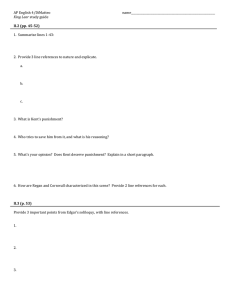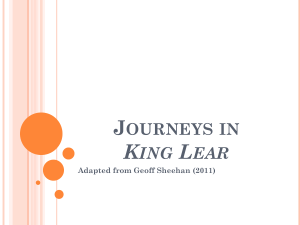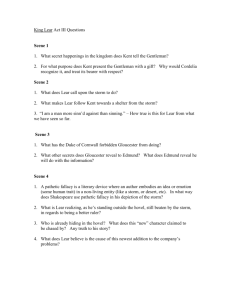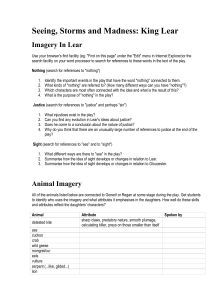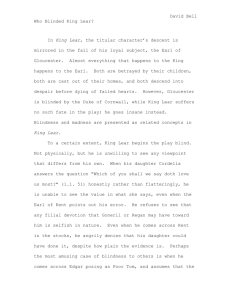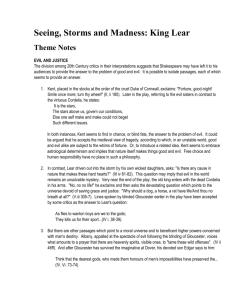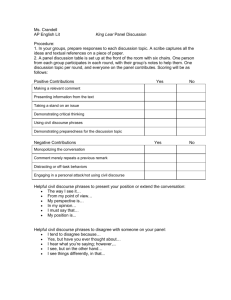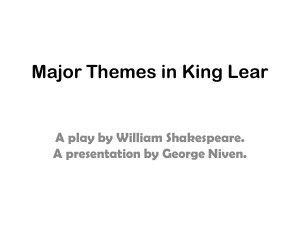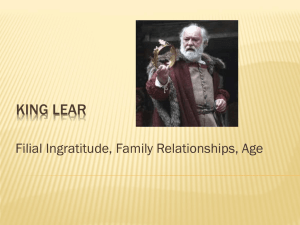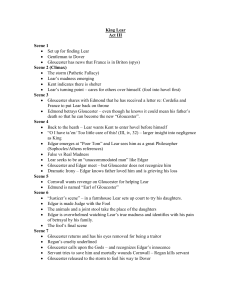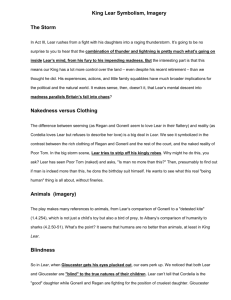Senior English 243: Shakespeare Name: William Shakespeare`s
advertisement
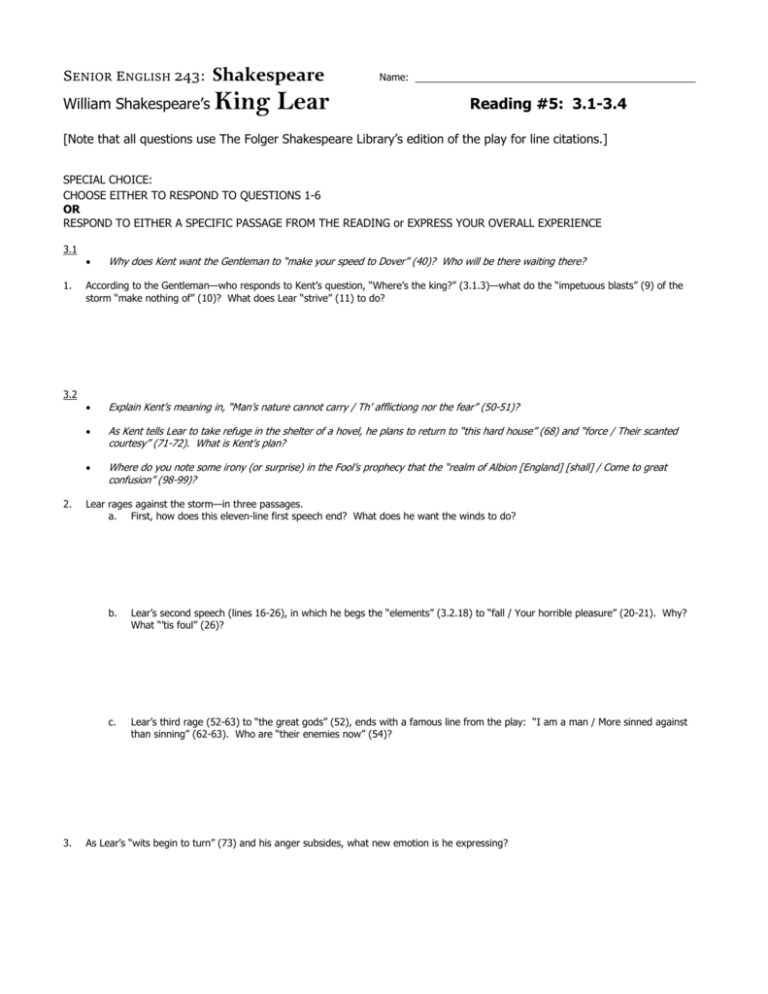
SENIOR ENGLISH 243: Shakespeare William Shakespeare’s King Lear Name: Reading #5: 3.1-3.4 [Note that all questions use The Folger Shakespeare Library’s edition of the play for line citations.] SPECIAL CHOICE: CHOOSE EITHER TO RESPOND TO QUESTIONS 1-6 OR RESPOND TO EITHER A SPECIFIC PASSAGE FROM THE READING or EXPRESS YOUR OVERALL EXPERIENCE 3.1 1. 3.2 2. 3. Why does Kent want the Gentleman to “make your speed to Dover” (40)? Who will be there waiting there? According to the Gentleman—who responds to Kent’s question, “Where’s the king?” (3.1.3)—what do the “impetuous blasts” (9) of the storm “make nothing of” (10)? What does Lear “strive” (11) to do? Explain Kent’s meaning in, “Man’s nature cannot carry / Th’ afflictiong nor the fear” (50-51)? As Kent tells Lear to take refuge in the shelter of a hovel, he plans to return to “this hard house” (68) and “force / Their scanted courtesy” (71-72). What is Kent’s plan? Where do you note some irony (or surprise) in the Fool’s prophecy that the “realm of Albion [England] [shall] / Come to great confusion” (98-99)? Lear rages against the storm—in three passages. a. First, how does this eleven-line first speech end? What does he want the winds to do? b. Lear’s second speech (lines 16-26), in which he begs the “elements” (3.2.18) to “fall / Your horrible pleasure” (20-21). Why? What “’tis foul” (26)? c. Lear’s third rage (52-63) to “the great gods” (52), ends with a famous line from the play: “I am a man / More sinned against than sinning” (62-63). Who are “their enemies now” (54)? As Lear’s “wits begin to turn” (73) and his anger subsides, what new emotion is he expressing? 3.3 4. Note Edmund’s use of the word nature in his response to his father Gloucester’s complaint about not being allowed by Cornwall and Regan to support the king: “Most savage and unnatural” (3.3.7). What would a natural action be, in this case, according to Edmund? What is in the “letter” (10) that Gloucester has “locked…in my closet” (11)? What directions does Gloucester give to Edmund while he goes to “relieve” (15) the king? What is Edmund’s plan, by which “The younger rises when the old doth fall” (25)? 3.4 5. As Kent urges Lear to enter the hovel, Lear reflects on the one thing that “from my senses take all feeling else” (3.4.16). What does Lear mean in saying, “No, I will weep no more” (20)? When Lear first sees Poor Tom (Edgar, in disguise), what does Lear assume to be the reason for how Poor Tom came “to this” (54) [terrible condition]? Why has Gloucester “ventured to come seek [Lear] out” (160)? Gloucester speaks to but does not recognize two good men, both in disguise, in this scene. Why does Gloucester remember “that good Kent” (172)? What is Gloucester referring to when he says “The grief hath crazed my wits” (180)? According to Lear, who is the “Noble philosopher” (183)? Why? Paraphrase the following: Take physic, pomp. Explose thyself to feel what wretches feel, That thou may’st shake the superflux to them And show the heavens more just. (38-41) 6. Lear to Poor Tom: “Thou art the thing itself; unaccommodated man is no more but such a poor, bare forked animal as thou art” (113115). Then, to himself (his clothes, really): “Off, off, you lendings! Come, unbutton here” (115-116). Describe/Explain the significance of this moment. Passages of Interest OR General Response to the Scenes Choose ONE line or passage from the reading that interests you for ANY reason and that you want to discuss with a classmate, the teacher, or the entire class. Maybe it’s a passage that you don’t understand. Write it down, along with the page number and the explanation for your choosing it. FILL THE GIVEN LINES BELOW. PASSAGE: RESPONSE:
